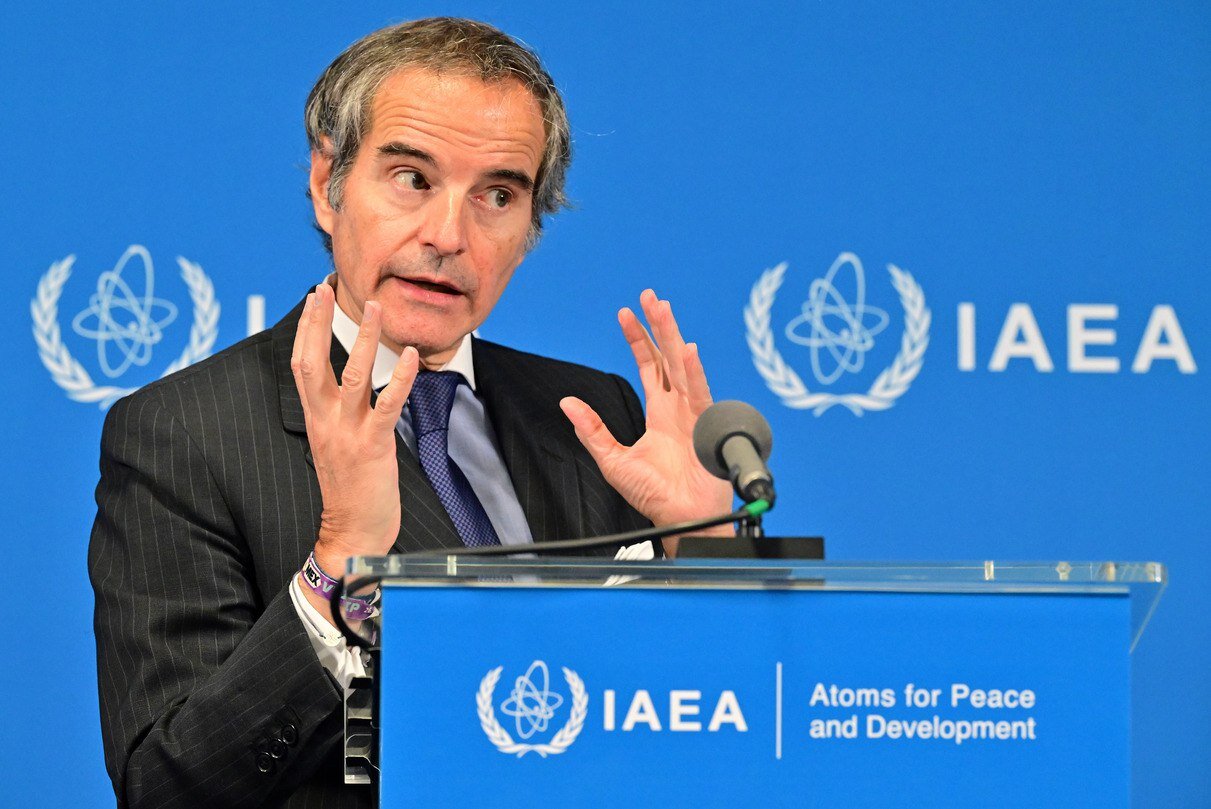IAEA board meeting kicks off with recycled allegations against Iran

TEHRAN – Rafael Grossi, the head of the UN nuclear watchdog, has repeatedly bent—if not outright broken—the standards he is bound by in order to appease the West regarding Iran’s nuclear program. Unsurprisingly, his latest remarks at a press conference ahead of the June meeting of the International Atomic Energy Agency (IAEA) Board of Governors were steeped in bias and political agenda.
The press conference revisited the leaked contents of a confidential report Grossi had provided to IAEA member states on May 31, dredging up old and long-resolved allegations against Iran. The report’s claims of “secret” nuclear activities appear designed to lay the groundwork for the U.S., Britain, and France to accuse Iran of violating its non-proliferation obligations during this year’s June meeting—just as Tehran engages in indirect talks with Washington over its nuclear program.
Below, we examine Grossi’s recycled accusations against Iran and assess whether they hold any merit.
The IAEA’s politicized role on Iran
Facing reporters, Grossi fielded numerous questions about Iran’s nuclear program, insisting that the draft resolution put forward by the U.S. and E3 (Germany, France, and the UK)—which accuses Iran of non-compliance—is “separate” from ongoing Iran-U.S. negotiations. “There is no formal link between one thing and the other,” he claimed, before contradicting himself: “But it is obvious… that there is an interrelation and perhaps a mutual influence. Not perhaps—for sure. It is a mutual influence.”
Yet critics argue and evidence shows that the IAEA, particularly under Grossi’s leadership, prioritizes exploiting the nuclear dispute with Iran for political and personal gain over fulfilling its technical and legal duties. As previously reported by the Tehran Times, Grossi has been tasked by the E3 with undermining nuclear talks between Iran and the U.S., from which Europe has been sidelined. His close ties with Israel—including multiple visits to the occupied territories, despite the absence of UN oversight of Israel’s nuclear facilities—further erode his credibility.
By recycling old allegations, the IAEA reveals its true objective: not genuine concern over Iran’s nuclear activities, but manufacturing a pretext to censure Tehran, thereby creating leverage for extracting concessions at the negotiating table. In exchange, Europe would back Grossi’s bid to become the next UN Secretary-General, according to information previously released by the Tehran Times.
The JCPOA hypocrisy
Elsewhere in his Monday remarks, Grossi claimed that the 2015 nuclear deal (JCPOA), which the U.S. unilaterally abandoned under Donald Trump, is no longer sufficient—not because the West has rendered it defunct for years, but because Iran scaled back its commitments in response to renewed U.S. and European sanctions.
Ignoring the severe economic toll these sanctions have exacted on Iran, Grossi insisted that even if the JCPOA collapses, the IAEA must retain its inspection rights over Iranian nuclear sites—privileges originally granted under the deal in exchange for sanctions relief. This stance exposes the IAEA’s double standards: while Iran is pressured to uphold its obligations, the West faces no accountability for violating the agreement first.
Once again, Grossi’s remarks cast doubt on the IAEA’s impartiality and its obligation to remain free of political bias.
The flawed alarm over uranium enrichment
On the issue of uranium enrichment, Grossi acknowledged that the activity itself is not prohibited under international law—a point Iranian officials frequently emphasize. “Uranium enrichment per se is not a forbidden activity,” he admitted, echoing Tehran’s longstanding position.
Yet he still voiced “concern” over Iran’s uranium stockpiles, despite offering no evidence that they are linked to a nuclear weapons program. This selective alarmism ignores a key fact: Iran’s increased enrichment levels are a direct response to the West’s own violations of the JCPOA. If the IAEA were truly impartial, it would address the root cause—Western non-compliance—rather than scapegoating Iran.
A watchdog that barks on command
Grossi’s latest statements confirm a troubling pattern: the IAEA, under his leadership, functions less as an impartial technical body and more as a political tool for Western powers. By reviving debunked allegations and ignoring the West’s role in undermining the JCPOA, Grossi undermines the agency’s credibility.
If the IAEA truly seeks to uphold non-proliferation, it must divorce itself from geopolitical pressures and return to its mandate: objective, fact-based assessments—not politically motivated smear campaigns. Until then, its reports on Iran will remain little more than recycled propaganda, serving the interests of those who pull the strings.
